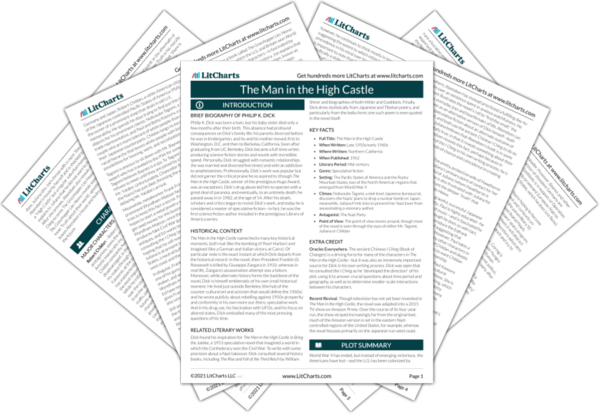In the novel’s closing passage, Juliana again considers forgiveness and reconciliation (with Frank, in her case) as a crucial part of living in such a mystifying world. Forgiveness, uncertainty, and contradiction are perhaps all forms of the “truth” that Juliana reflects is so hard to find. But despite this uncertainty, she can now look forward to what is “moving and bright and living”—the future.
